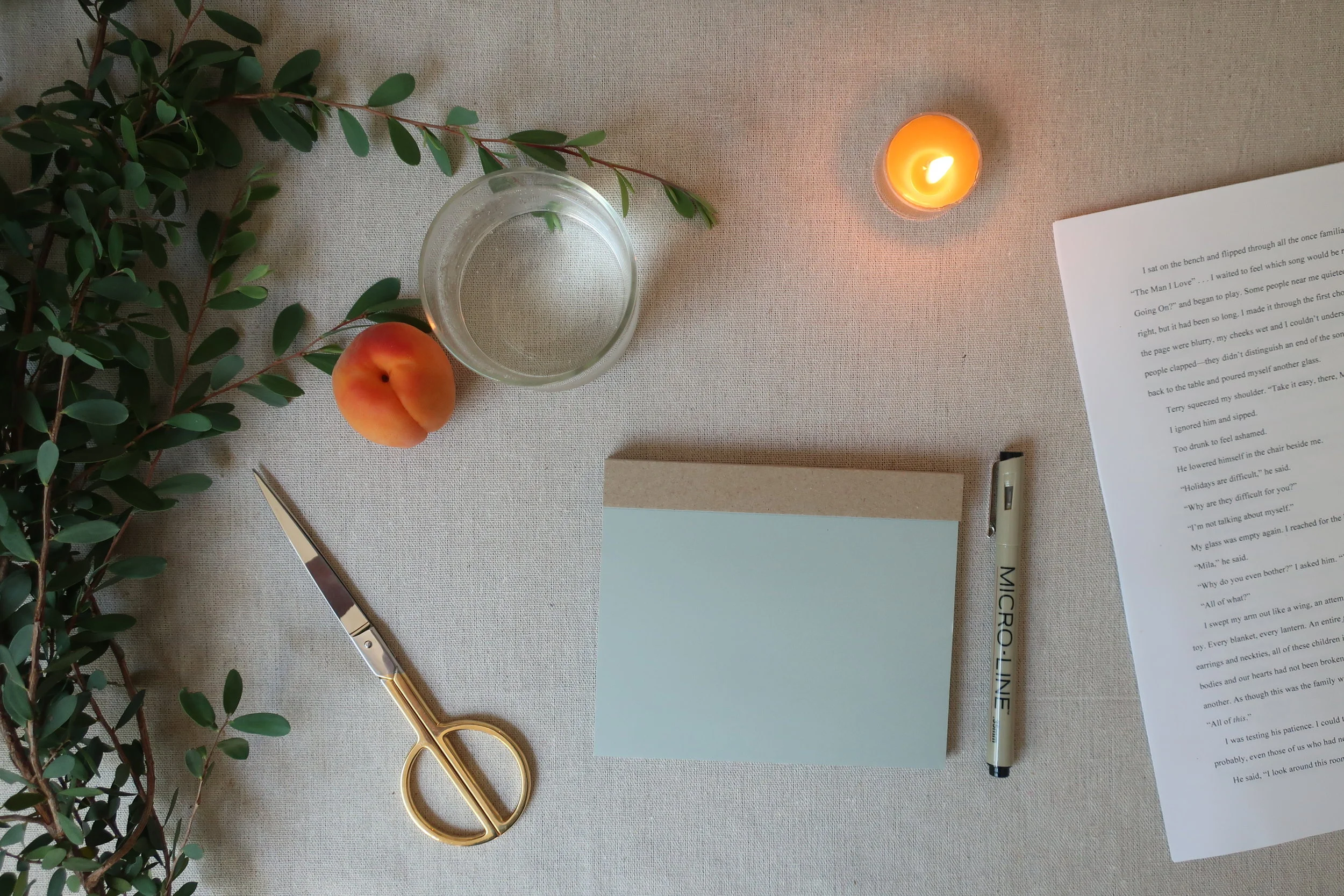To begin, I want you to answer the following questions for yourself. I encourage you to take out your notebook and put pen to paper or to open a new document and type out the answers. You will get so much more from this exercise if you write out the answers rather than simply thinking about them.
By this I mean your actual practice of writing. Do you write daily? Weekly? In intense bursts and then not at all? Have you been practicing steadily for years, or is this all new to you?
There is no right or wrong way. What there is, though, is room for growth and intention. So . . .
Remember that even though writing is often difficult, you’re doing it because you’re called to, so you might as well make the time feel special. A pot of tea, a candle, a favorite pair of slippers, a clean desktop, a certain album playing, a seat in your favorite café . . .
Do you want to take a walk around the block before you settle in? Do you need to stash your cellphone out of reach or unplug your modem? Find out what makes you feel refreshed and ready to focus and give yourself a few minutes to prepare.
By this I do not mean where you want to be in your novel. If all goes as planned—and I truly think it will—you will be in a good place with your novel, totally immersed in it, by the time you've completed these lessons. But so much relies on your dedication to the course, and by extension (and most importantly), your dedication to your own regular practice of working on your book. Once again, there is no correct answer. My hope is that once you experience writing regularly for this class, you’ll find what works best for you—what time of day, what duration of time, what frequency—and will be prepared to keep it up once you’re finished.

